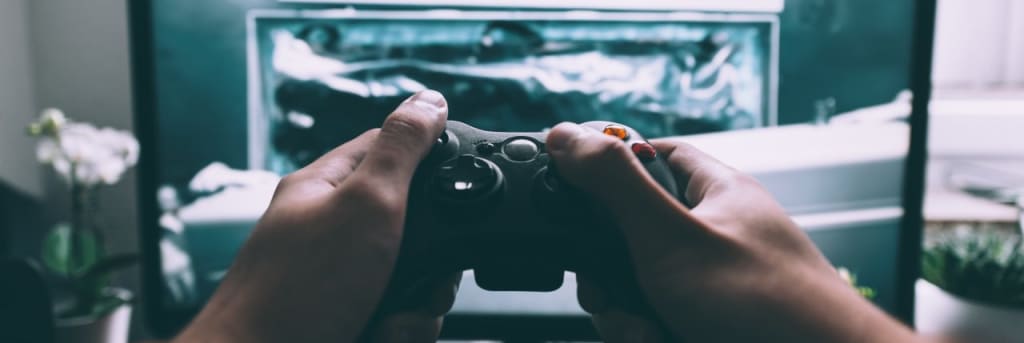Internet Addiction Disorder Is a Mental Disease, Not a Joke
My Struggle With Internet Addiction Disorder and How It Negatively Affected My Life Long After I Put it Behind Me

For the earlier years of my childhood, I suffered from a disorder that doesn't exist.
As a naive, innocent child, I was easily dragged into hypnosis in the form of a desktop computer that I simply couldn't get enough of. I never was able to fathom how technology became my biggest enemy, although I didn't have it nearly as bad as the cast of the Terminator franchise. However, I suffered from a disease whose existence is still deep in debate.
As for myself and others who suffer from it, we can say with confidence that it is a real thing, and it needs more attention than it currently has.
Gaming Disorder
Internet Addiction Disorder (IAD) is exactly what is sounds like: An addiction to the use of the internet. It has taken on many names, such as Compulsive Internet Usage or even iDisorder. However, I suffered from a specific form of Internet Addiction Disorder known as Gaming Disorder.
There is, however, still importance behind other forms of IAD. For example, CNN ran an independent study that found 50 percent of American teenagers and 27 percent of American adults believe they're addicted to their smartphones. Also, 80 percent of teens said they check their phones hourly, and 72 percent said they feel compelled to respond to texts immediately. Smartphones and laptops are perfectly fine to use, and most people who claim to be addicted likely don't have it as bad as others with serious addictions. It's a necessity in the 21st century, but it only becomes detrimental when you overuse it to the extent that it changes yourself or your health.
Meanwhile, away from the word of smartphones and social media, there is Gaming Disorder. Victims of Gaming Disorder often feel compelled to play what seems to be infinite gaming sessions, which can be compared to unhealthy binge-watching on Netflix.
A Disease That Does Not Exist
It is next to impossible to write an article on something that doesn't exist, especially since major news outlets haven't reported on it too much. When I began my research, I didn't know if I could trust any of the minor, basically unheard of companies that reported on the issue.
One would diagnose themselves with Internet Addiction Disorder rather than seeking a diagnosis from a medical professional simply because there are no professionals in this field. If you search up the multiple names for the disorder online, you likely won't find results from serious media outlets.
This is because Gaming Disorder isn't taken seriously.
I read a few articles that claimed the World Health Organization (WHO) had officially classified Internet Addiction Disorder as a mental illness, however I was unable to follow up on that claim after visits to multiple news outlets and the WHO's official webpage.
However, some side affects that can be linked with it include very real disorders and illnesses.
For example, the biggest side affect for my experience with Gaming Disorder was obesity. I found myself gaining an average of 35 pounds a year, entering middle school at a weight of 90 and exiting at a weight of 190. My skyrocketing weight also gave me anxiety and extreme insecurities, which I linked with depression and suicidal thoughts.
In fact, all of these side affects once led me to take suicidal action.
However, I am long passed that.
My Experience with Gaming Disorder
From the middle of elementary school to the end of middle school, I noticed my unhealthy pattern in excessive gaming. I used my mother's computer for gaming, and she used it for work. I often argued over the computer when she kicked me off, and I would start crying or yelling when I didn't get to play. This heavily damaged my relationship with my mom.
Towards the beginning of middle school, I got my brother hooked on technology too. We were now sharing a computer between a community college student and two tech addicts. My brother and I often got into intense exchanges and fights over a piece of technology. On one occasion, I recall that my brother tossed a plate of food and drink onto me and we ended up exchanging multiple punches.
My family life took a turn for the worse, and it took a huge emotional toll on my mother as she watched her children fight it out over a piece of technology. While she was busy with earning her Bachelor's degree in Business Administration from the American Public University System, she also had to clean the house. My dad ran his own chain of gas stations, and he often found himself busy at work. However, when he got home he often decided to be more than lazy about cleaning the house. Of course, my brother and I were too busy arguing over the computer.
My sister was the only one who helped my mom, and once she left for college nothing ever got done in the house. To me, it felt like our entire family was falling apart and I linked it back to a piece of technology.
Not to mention, I had put on at least 100 pounds in my middle school years, and I was beginning to develop anxiety and depression. I never told my classmates about my excessive gaming, or that I even gamed at all, because I found it to be embarrassing. However, I was developing health problems from obesity, I became sleep deprived, and I also noticed my grades were slipping well below where I wanted them to be. I even pushed myself to take suicidal actions on multiple occasions.
It was time I did something about it.
Recovery Phase
I never tried to seek professional help for my IAD, specifically because I was embarrassed to admit I had it. The only people who noticed my addiction were my immediate family, although they likely didn't see it as a medical condition.
Once eighth grade came around, I decided it would be my year for change. I leveled out at about 195 pounds and haven't gone over for more than a year. I got way more involved in my Boy Scout troop, and eventually we went on this week long overnight camping trip. I have no clue how to explain it, but I found myself connecting with nature and having fun away from technology in ways I never had before. When I came back from the trip, I just didn't find myself interested in playing video games anymore.
I owe this to a lot of things, and part of it is my sudden interest in music.
At the beginning of eighth grade, I met a girl who was a new student, and she became my best friend in just the course of a few months. By April, I was in love with her and became her boyfriend. It may sound like a cheesy love story, but there are ways she saved me as a person that she will never be able to fathom.
I had always been interested in music, but she was the one who made me turn it into action. My grandfather was a vivid, talented guitar player and he had tried to get me to play years ago, but of course my technological addiction decided that I would chose gaming over music. Once I was getting out of the hole of Gaming Disorder, I began to pursue guitar.
Not to mention, I also devoted a lot of my time to being with my girlfriend. Instead of gaming, I opted to call and hang out with her.
Not only this, but I applied to attend a local early college for high school, which was ranked as the top school in our district. Once I got there, I made amazing new friends who accepted me for who I was. As a result, I became more confident in myself and more sociable. I realized that there was more to life than being an introvert gaming addict.
A New Beginning
Now, I am 14-years-old.
I have put Gaming Disorder behind me, but I haven't truly forgotten it. My brother, however, still hasn't recovered and often finds himself playing on his laptop at least five hours a day, or even 15 maximum on a weekend. My brother's addiction and my weight problems still casts a shadow upon me.
However, I feel like a new person. I have better grades than I have ever had before, I am a talented guitar player, vivid reader, and I have a loving girlfriend who I have been with for nearly a year—which is really impressive for a high school relationship!
I am proud of who I am, which is something I have never been before.
Now, I've decided it is time to share my experience with others. I suffered for years from a disorder that doesn't exist, and it's time to change that. Internet Addiction Disorder is a real disease, and it needs to gain national attention. When I look around me, I see the same addiction I suffered from in my own household and in some of my friends. This isn't the kind of addiction that gets you hooked on a drug and can take your life, but rather the type of addiction that can take your livelihood. Besides, you don't overcome this by seeking medical help, you overcome this by finding yourself.
Gaming Disorder is not a joke, and it's time for people to stop treating it like one.
About the Creator
Carson David
North Carolina 🌾
Journalist 📖
15 Years Old






Comments
There are no comments for this story
Be the first to respond and start the conversation.